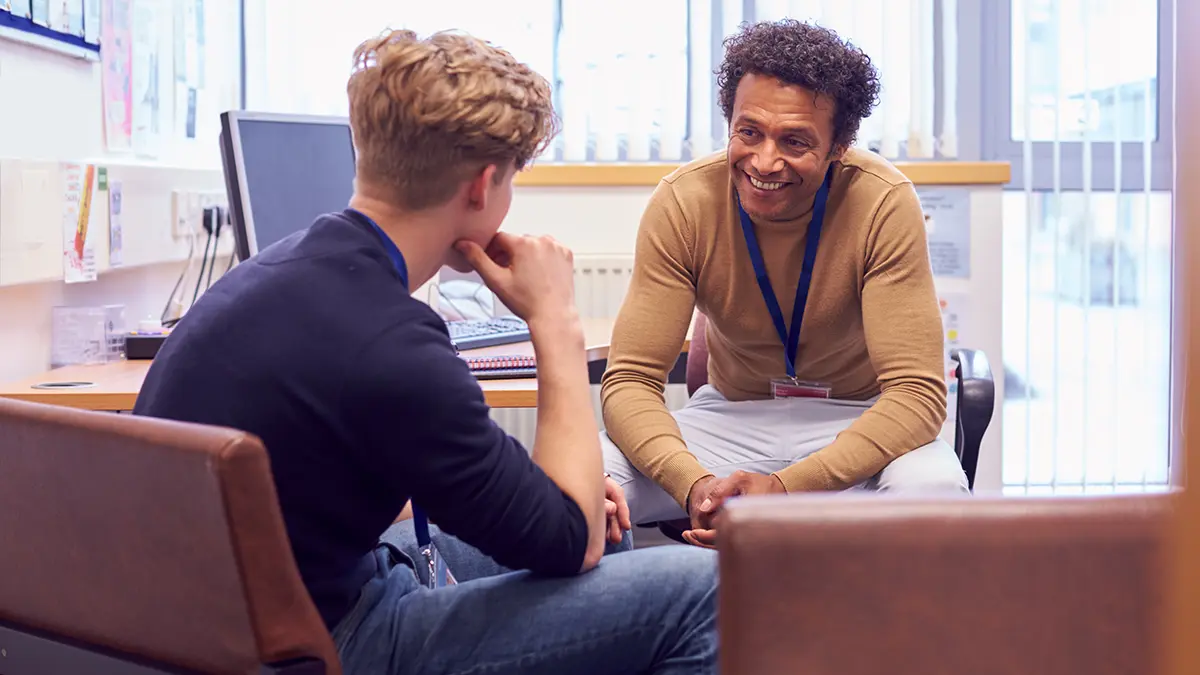
Finding the Best Postbac or SMP Option for You
Updated July 2024
Introduction
While you may have always wanted to be a doctor, your undergraduate transcript reveals some struggles. Maybe you chose a different major or path after you were discouraged by your early science prerequisites, but your interest in a health professional career has returned. Maybe the desire for a career as a physician or other health professional arose after some time in another career. Now you want to know: “Is it time to pursue becoming a doctor?” and “Should I do an informal or formal postbaccalaureate or special masters (SMP) program to get there?”
The Student Doctor Network has discussed postbac programs since our beginning! This article updates our longstanding advice on the Postbac Discussion Forum, and it surprises me how little has changed except for the explosion of such programs in the intervening 25 years.
- Post-bacc FAQ | Student Doctor Network
- **The Official Guide to Special Masters Programs** | Student Doctor Network
- 2016 Postbac Program Guide article
Note: Embedded program links in this article are mentioned as examples and do not imply endorsement.

Define Your Goal as a Postbac Student
“Postbac” courses loosely refer to those taken after earning their first bachelor’s (baccalaureate) degree. We will focus on those aspiring for a health professional career, but other postbac pathways exist to pursue science-oriented careers (see Keck Graduate Institute).
Career-Changer Programs: Need to Take Prerequisites
Those who have earned degrees outside the traditional biomedical sciences and are changing their career direction may need to take prerequisites, didactic labs, and upper-level courses for the first time. Most application GPAs conventionally include one’s entire undergraduate history including postbac coursework.
Many community colleges and public universities allow non-degree postbac students to enroll in prerequisite courses. Planning a “do it yourself” (DIY) curriculum is easy – provided you can enroll. Career changers often have difficulties getting into didactic lab sections that conveniently fit their work schedule. However, DIY students are not always eligible for prehealth or career advising.
More “formal” career change postbacs offer a certificate of completion. Many are overseen by a prehealth faculty advisor or administrator who can provide application advice and a program letter of support. Some programs offer evening classes to accommodate an established career or family responsibilities (Drexel University, Fordham University).
Academic Booster/Record Enhancement Programs: Need to Take More Rigorous Courses
Many students who struggled with freshman or sophomore prehealth coursework but completed a biomedical science degree may consider taking additional upper-level courses during their postbac. Some may opt to repeat grades for courses where one has withdrawn from or failed, noting that all marked grades are calculated in the application GPA. By taking upper-level courses, one can consistently show high marks over 30 to 45 credit hours in recommended foundational to health professional preclinical courses. Both DIY and formal program options are available.
Want to hear some different perspectives on post-baccalaureate programs? Check out some of our articles on post-bacc programs:
Special Master’s Programs: Need to Prove Readiness in a Rigorous Medical Science Curriculum
Because students have already recorded around 120 semester hours with a bachelor’s degree, adding 30 or more hours may not raise the overall undergraduate GPA. Some programs allow for retroactive withdrawals that can remove early baccalaureate coursework’s effect from the GPA calculation.
For candidates who have overall undergraduate GPAs under or near 3.0, a one-year “special master’s program (SMP)” is often the best and only option left to show a solid foundation for a medical school or other health professional graduate program. Some SMPs offer a second year (capstone) to complete a research Master’s thesis as some apply to their preferred health professions programs. Graduate GPAs are usually separated from undergraduate/overall GPAs, so it serves to show a “second chance” to demonstrate academic competency.
Eligibility for SMPs varies. Some may require a minimum undergraduate GPA of 3.0, so additional DIY coursework may be required to meet this requirement. Others may accommodate sub-3.0 GPAs. Applicants should also have clinical and community service hours to make their application more desirable (Eastern Virginia Medical School). Contact individual programs for advice on your specific situation.
In older, more traditional programs, SMP students take medical school lectures, simulated patient experiences, and exams with first-year medical students (Eastern Virginia Medical School). Many SMPs now have curricula designed for their students that involve more small-group discussion and “flipped classrooms” to better prepare them for similar learning environments at most health professional programs.
Special Masters Program Admissions
Read our 2007 interview with the University of Cincinnati’s Director of the MS in Physiology Robert Banks. Special Master’s Program: Interview with Robert Banks, PhD – SDN
Interprofessional Flexibility: Postbacs if Medical School is Not Your Goal
While aspiring physicians comprise the majority of students seeking postbac programs, postbac programs are willing to be more flexible and interprofessional. Many postbac programs recognize that offering rigorous science courses is important for future dentists, optometrists, veterinarians, pharmacists, physician assistants, physical/occupational therapists (pursuing doctorate degrees), and advanced practice nurses (DePaul University Program, Mississippi College Program, San Francisco State Postbac Program). Learning in a group of aspiring pre-professional students will anticipate future small study groups and clinical huddles where interprofessional practice is accepted and encouraged such as in community-based clinics.
Postbac for All Pre-Health Students
Read our 2023 interview with Temple University Postbac Program Director Bob Rarig.
Q&A: Bob Rarig, Temple CST Post Bacc Pre-Health Program – SDN
Avoiding Problems in DIY Postbacs
Just as doing DIY home repairs can lead to trouble if you aren’t careful, students need to know the course requirements for a desirable application and pay close attention to the syllabus. Without an academic advisor who can verify whether a course appropriately has the science rigor for the desired professional pathway (some PA, PT, and OT programs may not have a consensus on what is covered in “basic biology”), a student can become underprepared or overprepared. Before beginning, take the time to find the appropriate advisor/administrator to craft your sequence of courses.
Completing around 30-45 semester hours with a postbac GPA of 3.7+ is considered a strong performance that can help applicants in their future applications, though it is insufficient to guarantee a successful application experience. Additionally, some schools are more accommodating in factoring in the GPA from the most recent courses.

Perks You Should Look For in
Postbac or SMP Programs
If you are considering a formal postbac program, rather than a DIY option, there are an array of potential perks that may factor into your decision.
Year-Round Flexibility
Many postbac programs offer year-round curricula (rather than just one entry point in the summer or early fall), so some have application deadlines for the summer, fall, or spring (Columbia University).
Personalized Prehealth Coaching and Mentoring
One of the most important benefits postbac program students receive is dedicated, available advising and mentoring (Thomas Jefferson University). Many students concurrently apply for their respective health professional program (e.g., submit an AMCAS application) when accepted to a postbac program. Advisors should be able to critique one’s profile and objectively make recommendations to strengthen one’s application for a better shot at an interview and subsequent acceptance. With a more favorable student-to-faculty ratio, students gain more effective mentoring that can lead to stronger letters of recommendation. Furthermore, some programs offer supportive “committee/institutional letters” upon successful completion to reaffirm the candidate’s preparation for professional school.
Learn from the 2023 Postbaccalaureate Advisor of the Year
Watch our interview with 2023 Advisor of the Year Dolores Shupp-Byrne, director of the P4 Postbac Program at Thomas Jefferson University.
Social Equity Mission and Support
Some postbac programs specifically support applicants from historically underrepresented and marginalized communities (Rosalind Franklin University Pre-Matriculation Program). For example, Native American postbac students can benefit from personalized prehealth application coaching (Mayo Clinic; NNaCoE-OHSU Wy’East for medicine, dentistry, or nursing). While some programs may require a standardized exam score (MCAT, DAT, GRE), others may include test prep with their program costs.
Online, Hybrid, or On-Campus Courses
Many postbac programs can flexibly expand their class cohorts while giving students a chance to build their credentials at home through online-delivered courses (Geisinger School of Graduate Education, University of New England, University of North Texas Health Science Center, University of Northern Colorado, University of South Florida). While most schools eschew online coursework, receiving postbac credentials from online coursework does not seem to put applicants at a disadvantage. That said, anecdotal evidence suggests that postbac students who are more “traditional” or from underrepresented/marginalized communities are much better served in an in-person learning environment.
Additional Academic Scholarship Opportunities
If they excel in their courses, many postbac students get opportunities to join research labs. Some SMPs offer opportunities to graduate with a combined degree. Many students can add an MBA (Case Western Reserve University), a Master’s in Environmental Health (Johns Hopkins/Bloomberg), a Master’s in Bioethics or in Public Health (Columbia University), or other graduate degrees (NEOMED postbac early assurance).
Research as a Postbac Student
Learn how to find research opportunities to enhance your application in our article How To Find Post-Bac Research – SDN .
Clinical or Service Opportunities
While the main goal of most postbac programs is to address deficiencies in scientific or academic competencies, many programs may also allow or arrange clinical or community service experiences to help applicants build upon their sense of altruism desired by most health professions programs. In contrast, many programs explicitly discourage students from taking on additional responsibilities, including employment, so their academic performance remains their sole focus (discussed at the end of the article).
Many program directors and faculty have connections to clinical offices and opportunities near campus. Ask the program advisors if they can use their connections to continue building your clinical breadth.
Articulation Linkages
The opportunity for a guaranteed interview to a health professions program is the most attractive incentive for postbacs who excel in their courses. Students can focus on their postbac courses rather than juggle them with an ongoing application and interview process. Here are some programs that list their articulation linkages:
- Agnes Scott College
- Bryn Mawr College
- Columbia University
- Johns Hopkins University
- NNaCoE Huwighurruk
- Salus University
- Tufts University
- Washington University
Ask about the eligibility requirements for a linkage admission, whether linkage is limited to a certain number of students, the declaration process (to pursue a linkage), and alternatives in case one falls short.

Postbac and SMP Factors You Should Consider
Cost of Attendance (Location) and Financial Aid
The most significant barrier is a student’s financial need to complete postbac coursework. Generally, DIY coursework is less expensive than formal programs, and postbaccalaureate certificate programs are generally more affordable than SMPs (Virginia Commonwealth University). Ask each program for general estimates of the cost of attendance (Boston University).
Depending on how much financial aid you have taken, postbac students may be eligible for additional aid for a DIY or formal undergraduate-level program (Oregon State University). Students should contact the financial aid office with their loan history or FAFSA information to see if federal subsidized aid is available (George Washington University). Graduate-level financial aid may be awarded to students in master’s programs (Barry University).
If you are an international student (on an F1 visa or undocumented), inquire about the enrollment and the financial aid process (University of Oregon).
Acceptance Track Record
Strong postbac programs (including SMPs) will profile successful students (Cal State East Bay) or the schools where they were accepted (Barry University). Check out programs that may offer “early assurance” tracks for postbac students (NEOMED).
Pay attention to the number of students who do not use linkage agreements to get accepted to other programs, especially among those former students with similar profiles to your own. Ask about students who struggled and had to take an alternate career path.
Some programs have a strong relationship with medical schools in their vicinity. If you are interested in staying in a specific area of the United States, check out all potential colleges and universities for postbac/SMP programs, and make it clear to the program directors that you intend to stay around. This is especially important for non-medical school-bound students and those who enroll in a newer program (established in the last five years).
Many SMPs use “expired” USMLE questions – known as “shelf exams” – to test their students in their graduate-level courses. Scores on shelf exams are intended to predict performance on relevant medical school board exams when they are students. Performance on these shelf exams is one convincing piece of evidence in the program’s institutional/committee letter.
Committee/Program Advantages over DIY/Traditional Applicants
As undergraduate prehealth offices are doing away with institutional/committee letters, more postbac programs are embracing them as an additional advantage to promote their students. The institutional letter gives faculty more space to discuss their mentoring relationship and knowledge of the applicant’s “distance traveled,” which many admissions committees dedicated to holistic review will find appealing. Compared to traditional applicants with challenges “herding evaluators’ letters” to push their files towards interview consideration, postbac applicants with committee letters may find their file reviews streamlined.
However, most postbac institutional letters will not be written until after grades from the first term are finalized by January. These grades are needed to determine eligibility for an interview in the winter/spring portion of the schedule. The institutional letters are received just before their interview windows, and it allows admissions committees to anticipate the number of seats filled with their articulation/linkage students before pulling off the waitlists from applicants interviewed mostly in the fall.
If the postbac program is hosted at the health professions school, faculty serving on the admissions committee may have colleagues who work with many of the postbac students or may themselves be mentoring some postbac students. With recusal rules in effect, a faculty member can be called upon as an additional character reference when discussing a postbac candidate’s preparation for their graduate program.
The program director often meets with admissions directors and deans for postbac programs not affiliated with a health professions school or university. The postbac director may get confidential insights into the impression their postbac students make during interviews or final deliberations to guide students who may need additional improvements. This feedback is essential to developing improvements in the postbac program that will better position and transition students to their health professional programs.
Postbac students must have strong mentoring relationships with their faculty to get the most effective institutional/committee letter. The faculty knows they want to convey your “distance traveled” and your personality to complement your academic successes in their program. Postbac programs benefit from a high acceptance rate among their students, so expect many to tout 95% or higher successful matriculation rates.
Student Culture
Unlike stereotypical undergraduate “premed” culture which may be experienced doing a DIY unstructured postbac, most postdocs and SMPs will not encourage a cutthroat/gunner student culture that is highly competitive. Most of the time, enrolled students cheerlead for each other and find ways to seek and give each other advice. Successful students often tutor or mentor newer students within the program and when they begin their respective graduate programs. These relationships continue longitudinally within the same health professions program, so it is always nice knowing some of the upperclassmen ahead of you. Alumni also enjoy giving advice to newer students to preserve the continuity of collegial support. Good karma is abundant among formal postbac/SMP students and alumni.
Access to student services is also an important perk of many formal programs. Confidential student success counselors can assess for learning challenges or other undiagnosed issues that justify a request for accommodations. Often, your enrollment in a formal program streamlines the process of getting appointments and proper follow-up that a DIY/unstructured program cannot.
Some programs allow postdocs leadership opportunities to advise their program faculty and directors (National Institutes of Health, New York University). These groups will organize social events, professional program visits, and community service opportunities for extracurricular support.

How You Can Research
Postbac and SMP Programs
Resources
Postbac and SMP opportunities have been growing at small liberal arts colleges, undergraduate universities, and health professions schools, including many professional programs where you may want to enroll. If a program is unavailable at an institution near you, you can search from available directories that generally target medicine and dentistry, but may also be available to other health professional programs.
AAMC – Postbac Directory and Glossary
AACOM – Postbac Directory
ADEA – Postbaccalaureate Programs information
NAAHP – Postbac Program Resource for Advisors
PostBacCAS
While many programs require applications to their graduate school, some programs participate in a common application (PostBacCAS). Some applicants may be eligible for a scholarship if they apply to a PostBacCAS program. Those planning to apply should review the Quick Start guide to prepare a timeline for prompt submission beginning in January. Applicants are charged a flat rate for each program they apply to.

How You Can Maximize Your Postbac or SMP Chances for Success
Prove you are ready for a rigorous health professional program by fully committing yourself as a student. While many prehealth students cite their struggles getting strong advising or finding a supportive peer community, postbac/SMP programs have all the perks and resources for success. Most admission committees see these programs as academic boot camps for medical/dental/veterinary school, and faculty often observe postbac/SMP graduates landing at the top of their class cohorts. Postbac/SMP graduates in professional school show the disciplined focus that has transformed and impacted them with self-confidence and momentum for success. While many prehealth applicants have desirable metrics for direct entry, postbac/SMP applicants also have the personal “power skills” to excel plus their full faculty/program endorsement.
Students are expected to dedicate themselves fully to their postbac/SMP and not take on unauthorized additional responsibilities (such as full-time or part-time employment, volunteering, or caregiving). Many postbac/SMP program directors can tell you how these tasks irreversibly diverted strong students from their career goals. Postbac program faculty have often advised students who do not excel in their programs, helping them consider alternate career paths. Are you ready to receive their feedback that your career goals must change if all of your efforts to address your struggles fail?
Often, a postbac/SMP student may need a leave of absence to attend to personal or family issues. Find out what the process is to suspend and resume your studies. Simply withdrawing from a postbac/SMP may seriously damage your ability to enroll in other postbac/SMPs.
That said, postbac/SMP alumni are in many medical schools, and those that graduate from your program offer a special lifelong professional connection as you consider specializing, geographic locations to practice and build your family or connect you with other opportunities outside of clinical practice. Most postbac/SMP alumni retain connections with their home program faculty and often return to offer guidance to current students. In a way, the postbac/SMP community is the supportive prehealth family you have yearned for, and by belonging to this group, you have the tools and mentors to launch your future career.
Postbac Discussion Forum
Want to learn more or discuss options with other students? Join the conversation on the Student Doctor Network Postbac Discussion Forum.